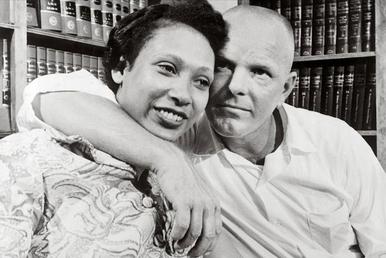
Loving Day is a national celebration held on June 12 marking the anniversary of the 1967 United States Supreme Court decision in Loving v. Virginia, which invalidated all remaining anti-miscegenation laws in sixteen U.S. states. These miscegenation laws had banned interracial marriage, unions between people of different races, until the Warren Court unanimously ruled them unconstitutional.
The landmark case of Loving v. Virginia was brought by Mildred Loving, a woman of black and Native American descent, and Richard Loving, a white man. With Mildred being classified as "colored" under Virginia's Racial Integrity Act of 1924, Mildred and Richard were arrested five weeks after their wedding when they returned to their hometown north of Richmond, Virginia. The couple moved to Washington, D.C. and sought legal assistance by writing to U.S. Attorney General Robert F. Kennedy, who referred their case to the American Civil Liberties Union (ACLU). The ACLU took on their case, and on June 12, 1967, the Supreme Court ruled unanimously in favor of the Lovings, nine years after their marriage. This decision struck down anti-miscegenation laws in all sixteen states that still enforced them, allowing the Lovings to return to Virginia with their three children and live as a legally recognized family.